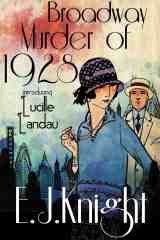New York crimewriter and allonymbooks mentor Lawrence Block generously shared a preview copy of his brand new Bernie Rhodenbarr novel with allonymbooks. Here’s what we thought.
 There are probably equal parts of pleasure and pressure in creating a successful serial character, for while they can generate enormous success there must be the constant wonder of whether and when to leave them be, and the incessant clamour of fans eager for the next instalment. Lawrence Block’s novel A Drop of the Hard Stuffwas almost certainly the last of his Matt Scudder books, and it’s been so long since we last heard about the burglary and brilliance of Bernard Grimes Rhodenbarr (The Burglar on the Prowl, 2004) that many loyal readers must have wondered if he had retreated full time to Barnegat Books and a virtual retirement. So it was a delight for all when Block announced that Bernie had reappeared after several years off in a brand new full-length novel.
There are probably equal parts of pleasure and pressure in creating a successful serial character, for while they can generate enormous success there must be the constant wonder of whether and when to leave them be, and the incessant clamour of fans eager for the next instalment. Lawrence Block’s novel A Drop of the Hard Stuffwas almost certainly the last of his Matt Scudder books, and it’s been so long since we last heard about the burglary and brilliance of Bernard Grimes Rhodenbarr (The Burglar on the Prowl, 2004) that many loyal readers must have wondered if he had retreated full time to Barnegat Books and a virtual retirement. So it was a delight for all when Block announced that Bernie had reappeared after several years off in a brand new full-length novel.
Bernie has been happily minding his own business at Barnegat Books, pondering (in an almost post-modern fashion) the impact of the e-book and Kindle on the traditional bookseller’s livelihood, when he is commissioned by a well-dressed stranger to commit a spate of burglaries. It starts small enough with a manuscript from a museum (delightful echoes of The Burglar who Painted like Mondrian), a task for which he enlists the help of his friend, lunch companion and conversational jousting partner Carolyn Kaiser, but the stakes are raised somewhat and a theme begins to emerge. Bernie is not without conscience, but his thieving must have elegance, purpose, and an educational context too. So when his old foe and foil Ray Kirschmann asks him for advice about a peculiar death and burglary in which he cannot possibly have been involved, but which seems to have no elegance and no purpose, his interest is piqued and Bernie begins to investigate. His reputation and freedom are not on the line as they are in his earlier escapades, but it seems his moral core is disturbed: perhaps it is the girl who found a book in his store and then bought its e-book counterpart on Amazon, perhaps it is her friend whose one-night stand has discombobulated him, or perhaps it is Bernie’s sense that the line between collecting and greed has grown thin.
The book has all the hallmarks of classic Bernie: fluent, hilarious dialogue, the admiration of artistic, cultural and literary worth, the ever-presence of New York City, Carolyn’s intermittently successful love-life, the culinary adventures of their daily lunch, and of course the puzzle of who is the murderer and why. It has also the hallmark of a man who is enjoying writing more than ever, and perhaps at times it is faintly self-indulgent as Bernie and Carolyn burble on cheerfully to each other more extensively than usual, and the history lesson is a little longer than in other novels. But there is much joy to be found in a reading a book which has so conspicuously brought its writer such pleasure, and if there was pressure to produce another Bernie story, it doesn’t show. Block has taken seemingly effortless advantage of what direct publishing has offered in writing a story and publishing it, and while a print publisher would have been reassured that they were getting what they always have, the reader does not have to wait eternal months for an editor to discover what Block surely knew: that the Burglar had never really left.
You can find links to buy the book at LB’s Blog and Website and follow him on Twitter: @LawrenceBlock
